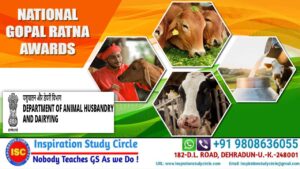
Inspiration Study Circle Explained: National Gopal Ratna Awards
The Department of Animal Husbandry and Dairying under the Ministry of Fisheries, Animal Husbandry and…
One Nation, One Election’ is a proposal under consideration by the Government of India to harmonize elections to the Lok Sabha (the lower house of the Indian Parliament) and all state assemblies. It wants to hold these elections simultaneously, on the same day, or within a specific time frame.
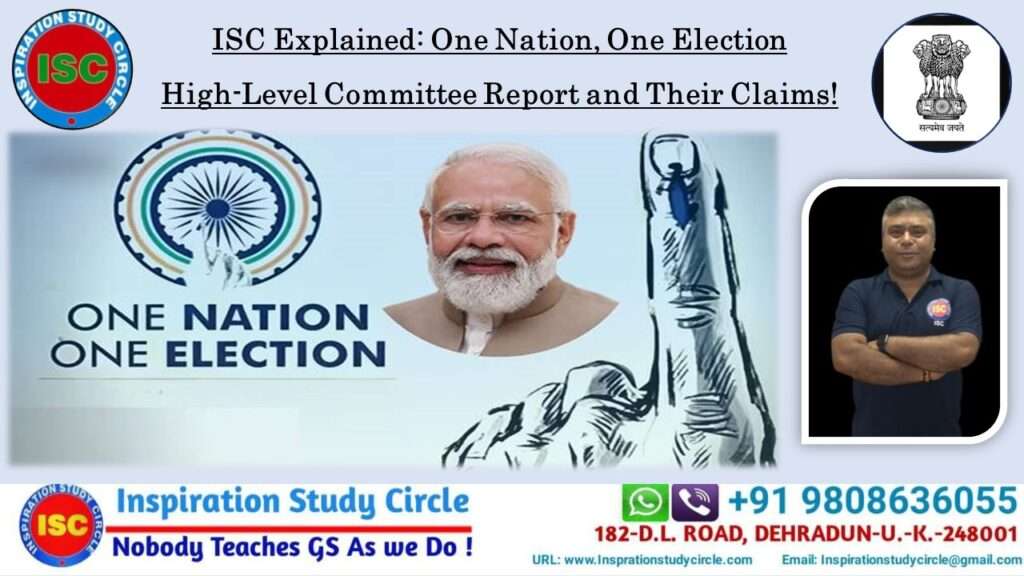
From 1951-52 to 1967, elections to the House of the People and state assemblies were held mostly simultaneously, after which the cycle was broken. Now, elections are held almost every year and even within a year at different times, resulting in large-scale. Expenditure by the government and other stakeholders, diversion of security forces and other election officials from their primary duties for a significant period, disruption of development work due to prolonged application of the Code of Conduct, etc.
The Law Commission of India observed in its 170th Report on Election Law Reforms: “This cycle of annual and off-season elections should be put to an end. We should return to a situation where the Lok Sabha and all assembly elections are held simultaneously. The rule should be that ‘Elections should be held once in five years for the Lok Sabha and all the Legislative Assemblies.
The department-related Parliamentary Standing Committee on Personnel, Public Grievances, Law, and Justice has also examined the ‘Possibility of holding simultaneous elections to the Lok Sabha (Lok Sabha) and State Assemblies’ submitted in December 2015 in its 79th report. matter and recommended an alternative and practical method of holding simultaneous elections in two phases.
Considering the above and national interests, it is desirable to hold simultaneous elections in the country. The Government of India formed this high-level committee to study the issue of simultaneous elections and recommend holding simultaneous elections in the country.
In August 2018, the Law Commission of India issued a draft report on simultaneous elections. It is said that to hold the general election simultaneously, amendments to the Constitution, the People’s Representative Act 1951, and the rules of procedure of the People’s Assembly and the State Assembly must be carried out. It stated that the Constitution, the Representation of the People’s Act 1951, and the Rules of Procedure of Lok Sabha and State Assemblies require appropriate amendments to allow simultaneous elections. The commission also recommended getting approval from at least 50% of the states. However, on the merits of the simultaneous poll, the commission will save public money, reduce the burden on administrative organizations and security forces, ensure the timely implementation of government policies, and focus on administrative development.
On September 2, 2023, the Government of India issued a notification appointing a high-level committee to investigate the issue of simultaneous elections. This committee has been constituted under the chairmanship of former President of India Ram Nath Kovind. Other members of this committee are:
The committee works with national and state political parties and seeks public and legal input on pending proposals. The proposal has raised concerns about its impact on India’s democratic and federal structure.
The High-level Committee on Simultaneous Elections constituted under the Chairmanship of Shri Ram Nath Kovind, former President of India, met the Hon’ble President of India, Shrimati Droupadi Murmu, and submitted its Report. The Report, comprising 18,626 pages, is an outcome of extensive consultations with stakeholders, experts, and research work over 191 days, since its constitution on 2 September 2023.
The other members of the Committee were Shri Amit Shah, Union Minister of Home Affairs and Minister of Cooperation, Shri Ghulam Nabi Azad, former Leader of Opposition in Rajya Sabha, Shri N.K. Singh, former Chairman, of the 15th Finance Commission, Dr. Subhash C. Kashyap, former Secretary General, Lok Sabha, Shri Harish Salve, Senior Advocate, and Shri Sanjay Kothari, former Chief Vigilance Commissioner. Shri Arjun Ram Meghwal, Minister of State (Independent Charge) Ministry of Law and Justice was a Special Invitee and Dr. Niten Chandra was the Secretary of the HLC.
The Committee held extensive consultations to understand the views of different stakeholders. 47 political parties submitted their views and suggestions, out of which 32 supported simultaneous elections. Many political parties had extensive discussions with the HLC on this matter. In response to a public notice published in newspapers in all the States and Union territories, 21,558 responses were received from citizens from all over India. 80 percent of the respondents supported simultaneous elections. Experts on law such as four former Chief Justices of India and twelve former Chief Justices of major High Courts, four former Chief Election Commissioners of India, eight State Election Commissioners, and the Chairman of the Law Commission of India were invited by the Committee for interaction in person. Views of the Election Commission of India were also sought.
After careful consideration of all suggestions and viewpoints, the Committee recommends a two-step approach to lead to simultaneous elections. As the first step, simultaneous elections will be held for the House of the People and the State Legislative Assemblies. In the second step, elections to the Municipalities and the Panchayats will be synchronized with the House of the People and the State Legislative Assemblies in such a way that Municipalities and Panchayats elections are held within a hundred days of holding elections to the House of the People and the State Legislative Assemblies.
The Committee also recommends that there should be a single electoral roll and Electoral Photo Identity Cards (EPIC) for use in elections to all three tiers of Government.
In tune with its mandate to explore the mechanism for simultaneous elections, and keeping in view the existing framework of the Constitution, the Committee has crafted its recommendations in such a way that they are following the spirit of the Constitution of India and would require bare minimum amendments to the Constitution.
Upon all-inclusive deliberations, the Committee concludes that its recommendations will significantly enhance the transparency, inclusivity, ease, and confidence of the voters. Overwhelming support for holding simultaneous elections will spur the development process and social cohesion, deepen the foundations of our democratic rubric, and realize the aspirations of India, that is Bharat.
Disclaimer: the above-mentioned article is based on information from the Press Information Bureau of India, the Indian Express, and Wikipedia.

The Department of Animal Husbandry and Dairying under the Ministry of Fisheries, Animal Husbandry and…
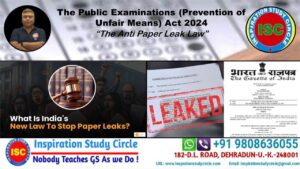
The center draws attention to anti-paper leak law amid the row of NEET and UGC NET exams: Rs 1 crore fine, up to 10 years in jail for offenders……
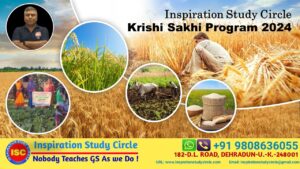
The Krishi Sakhi Program is an initiative implemented in various states of India to empower women …..
The Union Public Service Commission (UPSC) is all set to conduct its CSE Prelims Exam, tentatively on 26th May 2024…
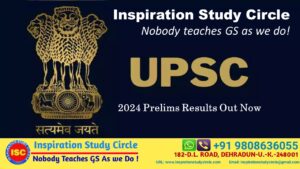
The Union Public Service Commission (UPSC) released the results of the Prelims …
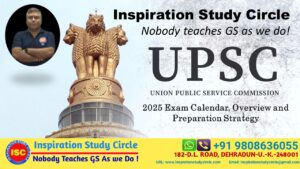
Union Public Service Commission (UPSC) has announced the Exam….